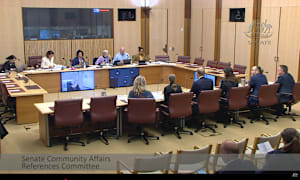Amber Crosthwaite, Partner specialising in Care and Living at WA legal firm Lavan, says the amendments to the Retirement Villages Act 1992 (WA) formally separate capital maintenance from capital replacement – a change that significantly alters operators’ financial and governance responsibilities.
Operators must prepare a five-year capital works plan; establish a Capital Maintenance Fund (CMF) in a separate authorised deposit-taking institution, and use recurrent charges solely for maintenance – defined as servicing, repair, and upkeep of capital items.
Capital replacement, when an item is no longer practical to maintain, must be funded from entry or exit payments specifically allocated for replacement, or the operator’s own resources.
"Despite statutory definitions, the boundary between maintenance and replacement is often blurred," Amber said. "Other jurisdictions (NSW, QLD) have seen tribunal disputes over resurfaced roads, air-conditioning units, and lift upgrades. WA operators should anticipate similar scrutiny. Clear documentation, budgeting discipline, and proactive resident communication are now essential."
Practices such as mixed-purpose reserve funds; or ad hoc budget transfers are no longer permitted.
"Misuse of the CMF – even inadvertently – may attract financial penalties," Amber added. "The CMF must be used exclusively for qualifying maintenance expenses. Transfers to cover operational shortfalls or capital replacements are explicitly prohibited."
Under the amendments, operators now bear the financial risk of deferred capital replacement.
"Recurrent charges cannot be used as a buffer," Amber went on. "If the CMF is over – or underfunded – residents (via special resolution); or the WA Commissioner of Consumer Protection, may apply to the SAT for top-ups or refunds. This introduces new scrutiny over both over-collection and under-provisioning."
The WA Government Consumer Protection is continuing to consult with stakeholders on new regulations to support the significant changes to the Retirement Villages Act 1992 (WA) (the RV Act) by the 2024 Amendment Act. The latest bulletin provides an overview of the proposed regulations to support new provisions in the RV Act on:
- payment of exit entitlements and completion of buy-backs;
- daily accommodation payments for aged care; and,
- information to be included in renovation plans and entry and exit property condition reports.
The changes to the RV Act will come into operation in late 2025 when the new Retirement Villages Regulations 2025 are in place.











